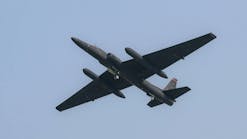The FAA is set to issue new policy concerning the installation of PMA parts as replacements for parts controlled by Critical Design Control Configuration Limitations (CDCCLs). The industry has been waiting for guidance for quite awhile. The draft policy has been posted on the FAA’s website for review and comment by the industry, and it is important that all PMA holders review this guidance to ensure that it will meet the industry’s safety and procedural needs.
The official FAA summary in the policy document states:
This policy statement provides guidance on approving the replacement of parts that are controlled by critical design control configuration limitations (CDCCLs) with parts that are produced under a parts manufacturer approval (PMA). Specifically, this policy statement addresses whether PMA components are eligible for installation approval, for cases where a PMA is granted on a basis of identicality with or without evidence of a licensing agreement, or on a basis of test and computation. This policy statement also clarifies whether approval for installation of a PMA component should be granted as an alternative method of compliance (AMOC) or component maintenance manual (CMM) deviation.
CDCCLs were developed in response to SFAR 88 and mandated by ADs. The FAA’s porposed guidance states that if a component produced under a PMA was eligible for installation on an existing airplane where CDCCLs were later mandated by ADs, the PMA needs to be reapproved as a replacement. The approval can be granted as an Alternative Method of Compliance (AMOC) if the part can be shown to comply with 14 C.F.R. § 25.981(a) and (d) (the Fuel Tank Ignition Prevention regulation).
PMAs issued for fuel tank system components that are the subject of CDCCLs are treated as “critical parts” according to this guidance.
The draft guidance also states that if the PMA part number is specified in a Component Maintenance Manual (CMM) that is the subject of a CDCCL mandated by an AD, no further approval is required to use the PMA part. This would apply to PMA parts that are specifically identified by the Type Certificate Holder in the CMM at any time, and in any revision level (such as those coming from a supplier with a contractual relationship with the TC Holder). This appears to establish a standard in which otherwise identical PMA parts could be subject to differing legal treatment by the FAA.
For test-and-computation parts, compliance with 25.981 may be demonstrated by showing the component has at least the equivalent ignition source prevention features as the TC holder’s part required by the CDCCL. That is, the component maintains the design features of the TC holder’s part required to prevent development of an ignition source. The PMA holder must establish that the component does not compromise the ignition source prevention features of the next higher assembly and of fuel tank system components that it could affect.
Public comments are due to the FAA by March 11, 2011. They should be emailed to Michael Collins at [email protected].
The proposed guidance can be found online at www.faa.gov/aircraft/draft_docs/media/DraftPolicyPMApartsCDCCL.doc



